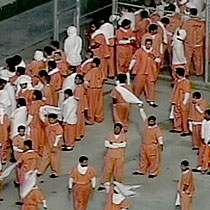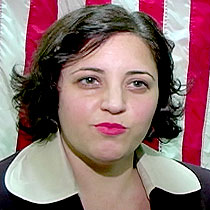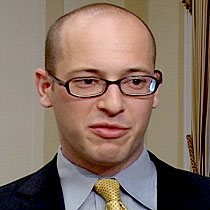2007年VOA标准英语-US Immigration Detainees Lack Health Care
搜索关注在线英语听力室公众号:tingroom,领取免费英语资料大礼包。
(单词翻译)
By Deborah BlockWashington
16 July 2007
A recent U.S. government report says detainees at American immigration detention1 centers are not receiving adequate medical care. Three human rights groups held a briefing on Capitol Hill last week to draw attention to the problem. VOA's Deborah Block has more.

Detainees awaiting processing by immigration officials
The groups say there are no uniform standards to ensure that immigration detainees receive humane2 treatment including sufficient medical care. They say people are suffering and a few have even died because of delays in getting medical treatment.
One women told of how her sister died while in custody3 after not getting treatment for life-threatening medical problems. June Everett said her sister once had a drug problem, but was a legal permanent U.S. resident who was arrested on her return from her native Barbados. "Sandra (Kenley) died because the American system failed her. A system we believed in. A system that needs fixing now, before more lives are lost unnecessarily."
The U.S. government General Accounting4 Office issued the report about immigrant detainee facilities. That report to Congress says that some detainee facilities are overcrowded and had deficient5 medical care, ranging from a lack of timely medical screenings to first aid kits6.
 |
| Jamie Zuieback |
Michele Garnett McKenzie is with the Minnesota Advocates for Human Rights. She says all too often medical problems of the detainees are ignored. She says contributing to the problem is the huge number of detainees in a mix of federal centers, private prisons and local jails, and the fact they sometimes are housed with prisoners convicted of crimes. "There's about 300,000 people every year in detention. It's a system that's grown rapidly. Ten years ago we had maybe 20,000 people annually8 in detention. It's just expanded at a tremendous rate due to immigration law changes in the United States."
 |
| Tom Jawetz |
"There were detainees who were literally9 sleeping on top of each other in the holding cells and also in the cells themselves. As a result there was increased tension and increased risk of medical and mental health disturbances10."
Dr. Allen Keller works on immigrant health issues at New York University. He says many facilities do not meet the medical needs of people who may be in custody for long periods. He also says that since only the federal government has the authority to approve surgeries and certain medical tests for detainees, treatment may be delayed and could have dire11 consequences. "We need to ensure that there is timely access to appropriate care, and that also includes empowering the care providers locally, so they can provide the care that they believe is needed and warranted, and that there should not be bureaucratic12 delays for weeks or months or potentially even longer."
He says independent oversight13 and stronger medical regulations are needed at detainee facilities to ensure people are held in safe conditions.
 收听单词发音
收听单词发音 




